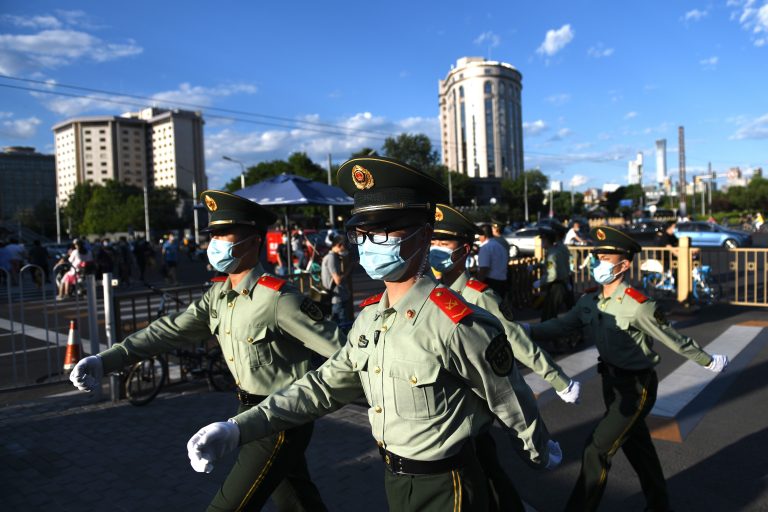The number of journalists jailed worldwide has increased since last year as reported by Reporters Sans Frontieres (RSF) and the Committee to Protect Journalists (CPJ). Both organizations list China as the worst offender for jailing journalists this year. This would be the second year in a row China has topped the list of having the most reporters behind bars.
According to CPJ, the number of imprisoned journalists globally has risen from 250 in 2019 to 274 as of Dec. 1, 2020, with the most jailed reporters located in China being 47. RSF, which tallies their figures on a different criteria, reports the number of jailed journalists imprisoned in China to be at least 117.
Journalists imprisoned amid pandemic
“A record number of journalists were imprisoned globally for their work in 2020 as authoritarian nations arrested many covering COVID-19 or political instability,” as stated by CPJ. In China specifically, four of the five reporters arrested in 2020 were jailed in connection to their reporting on the coronavirus pandemic.

Chinese reporters Cai Wei and Chen Mei, of Terminus2049, republished articles censored by the Chinese Communist Party (CCP). Their arrests are thought to be the result of publishing articles about the CCP virus as the charges brought against them of “picking quarrels and provoking trouble” happened after nearly 100 articles on the virus were republished by Terminus2049 in late 2019 through early 2020.
Also arrested in connection with CCP virus reporting were Zhang Zhan, a lawyer and freelance video reporter and Zhou Weilin, who operated a human rights website named Weiquanwang. Zhang Zhan had been publishing video reports of the virus outbreak from Wuhan when she was arrested in May 2020. On Dec. 28, she was sentenced to four years in prison.
Success
You are now signed up for our newsletter
Success
Check your email to complete sign up
Zhou Weilin was charged with “picking quarrels and provoking trouble” when he was arrested in March. His lawyer believes the arrest was the outcome of Zhou signing a declaration commemorating Li Wenliang, the doctor who blew the whistle sounding an alert about the virulence of the COVID-19 virus.
Reasons for detention
Cheng Lei, an Australian citizen working for the CCP-controlled China Global Television Network, was charged with endangering national security in August of this year as tensions between China and Australia have risen since trade talks and the CCP virus have been among the topics of heated discussion among the two nations.
“Endangering national security” is a common charge brought against reporters jailed in China along with “picking quarrels and provoking trouble,” “leaking state secrets,” “subverting state power,” and “separatism.”
“Separatism” is the most common charge brought against the detained ethnic Uyghur reporters currently behind bars. Of the 47 jailed journalists in China, half of the detained are ethnic Uyghurs.
Expulsion of foreign journalists
As the CCP tightens its control over both state-run and private media in China, it has also sought to limit foreign journalist activity within the country’s borders.
Early in 2020, Beijing expelled three American journalists from The Wall Street Journal over an opinion piece calling the country the “sick man of Asia.” In response, the Trump administration designated Party-controlled media outlets — China Central Television, the China News Service, the People’s Daily, and the Global Times — as foreign missions operating in the U.S, a move that subjected them to operating limitations. The number of Chinese journalists working for state run media in the US was capped from 160 to 100.
In retaliation, China then expelled American journalists working for The New York Times, News Corp’s Wall Street Journal, and the Washington Post, giving them ten days to hand back their press cards.
The disagreement between the US and China continues. In December, Haze Fan, reporter for Bloomberg, was arrested on the charge of “endangering national security.”
Follow us on Twitter or subscribe to our email list














